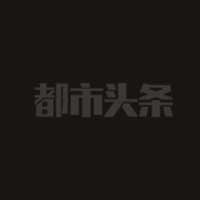
Introduction Feng Chun
Since ancient times, human beings have been regarding giving birth as the most important thing, and “giving birth to no sons is the most unfilial of the three unfilial manifestations” in Chia. To have more children was also encouraged in successive dynasties. Liu Bang, the first Emperor of the Han Dynasty, made a regulation that “the person who gave birth to a son could be exempted from taxes and military service for two years.” In the Song Dynasty, “grain stores” or “money stores” were set up to support the poor people who gave birth to sons. Poll tax was abolished in the Qing Dynasty.
Kangxi, during his period, made such a stipulation as “those males who reach mature age after the fiftieth year of Emperor Kangxi should no longer bear taxes.” And during the period of Emperor Yongzheng, “poll tax was changed into farmland one;” it means the tax should be levied in accordance with the harvest one had obtained from his land. The same condition has happened in western counties; for example, God, in the Bible, has put forward for many times that “people must multiply more and more so that their descendants would spread all over the earth.” The reason why Zeus was able to keep the throne was also because he showed his fertility of a male ruler, or I think that he was a fertile king of gods.
This novel, based on the topic of human reproduction, shows the contradictions and choices in the people’s daily life and work; the contradictions and choices also exist in nature, society, and personal obsession, generating the interesting stories and wonderful plots in the fiction.
Wang Suizong, whose younger brother died for his country when young, was the master keeping the strong concept of the more sons , the more happiness. After he had had a family, he had four sons and two daughters. He should have had a large and flourishing family, but the family still withered in population and was unsustainable when he died because of various reasons. After his daughters had
married out, each of their families came in the same condition without flourishing, having only one son for succession.
The storyline is deduced according to the circumstances of Wang Suizong and his daughters’ families. His four sons and two daughters were lower-level characters--one son was a peasant; another one was a civil servant; the third one was a soldier; the fourth one took over from his father’s job to work in a school. His youngest daughter went to college, and the eldest one was married to his first lover’s son as her daughter-in-law, who lived in a very ordinary carpenter family. The birth conflict in the story is mainly arranged in the eldest daughter's family, which had always been very weak with fewer males
and only one son for carrying on the family line since several generations. Her belly, however, didn’t bring herself a good luck to give birth to a son but to several girls. Therefore, there happened many problems referring to the eldest daughter Wang Guiying, who hoped to give birth to a son. In order to solve these challenges, only Wang Suizong's family could offer advice, strong support, and help. So a lot of funny stories have come into being.
The funeral for Wang Suizong is the end of the story, which comes back to tell something about the family of Wang. The characters taking part in the funeral were mainly Wang Suizong’s sons and daughters; very few of his grandsons showed up for the interment. One of his
grandsons had moved abroad with his parents to live there, advocating freedom, single, and independence; he was unwilling to give birth to children.
In fact, what persons do in the course of all their life is not just for reproduction and survival. They might have the experiences of running in the sunshine, rain, and dew, going through lots of hardships all the way, and a life-and-death fighting on the battlefield; they might also have the experiences of leaning on their chins for reveries as well as leisurely and carefree mood at the window of the moonlight nights, writing in inspiring words under the lamps, enjoying calligraphy and paintings in the yard. Persons do surely not have a full life when
they are short of any item of the experiences mentioned above. And people, in all their life, do not feel meaningful or happy for their incomplete life.
The most significant and obvious feature of your life is to have a sense of direction and make use of your aspiration to satisfy yourself. The manifestation mode of this self is foremost yourself; man is one of all things in nature. One, in the process of meeting his goals, must be full of faith and an eternal spirit, and he must be altruistic. This is not the same as the egoistic way of one’s life, which does not care about others but himself. The egoistic way of living is to realize self-centered, to realize personal vulgar and bottomless selfish desires for the
purpose, and it will ultimately be despised in the world. The former is my personal desire for a life of faith, and it is the pursuit of sentient beings, too. This pursuit is never monopolized by any one or some people; it arises from the life process of each individual breathing in and out.
Translated by Zhang Jingqun
扉页:
Life is a perpetually heavy effort;
effort brings yourself into the self; effort will not make you lose your way; effort can keep you firmly in place.
--Milan Kundera (Czechia)

冯椿简介:
笔名:木耶。网名:鸟山林。海南省作家协会理事。第五、六届海口市作家协会副主席、常务副主席;海口市德艺双馨文艺家。海南诗社副社长,《海南诗文学》副主编。海南省“双宋”文化研究会监事长。文昌市文化研究会副秘书长。
有诗歌、散文诗、散文随笔、小说、文学评论等于《人民日报》《光明日报》《四川文学》《世界日报》等国内外报纸杂志发表。有散文诗歌小说收集于《三沙文丛》、《蓝色的风》、多本年度诗集等,创作庆祝海南建省办大特区二十周年大型诗歌朗诵会《我眷恋这片热土》压轴之作尾声《路,在我们脚下》等。著有《那段日子轻悠悠飘悠悠》《海南黄花梨制作工艺龙塘雕刻艺术》等。主编《梦的色彩》、执行主编《创思远图》等,组织撰写《海口市非物质文化遗产丛书十一册》。获各项奖项若干。
